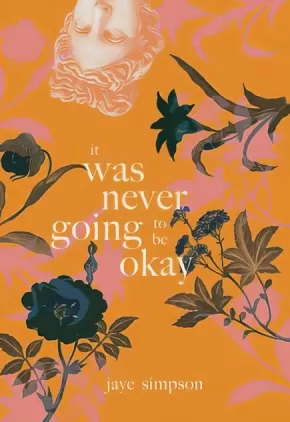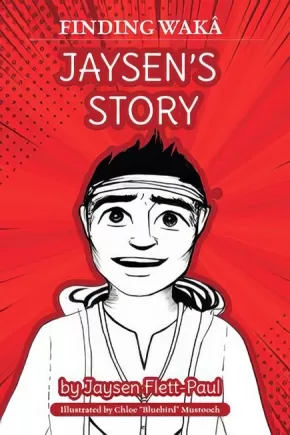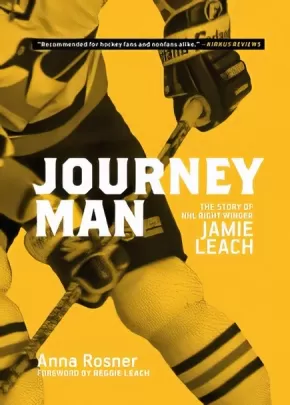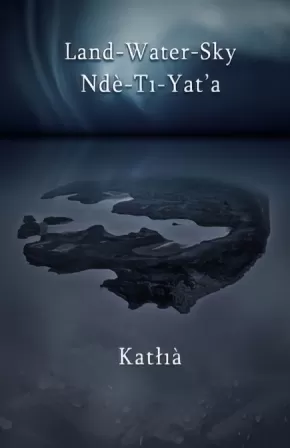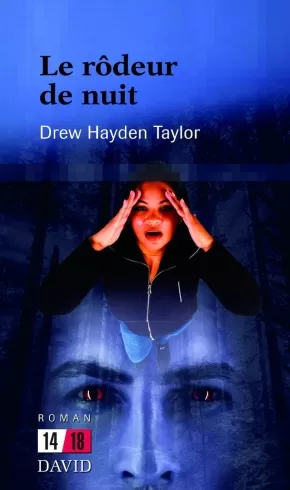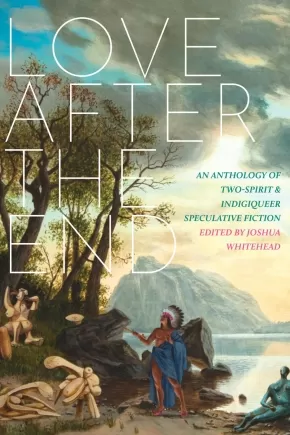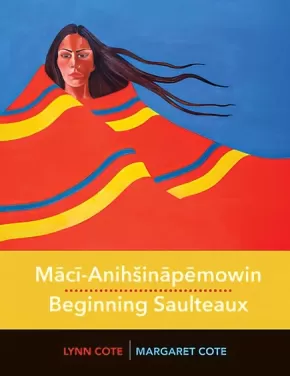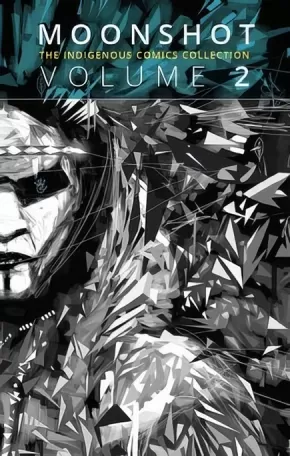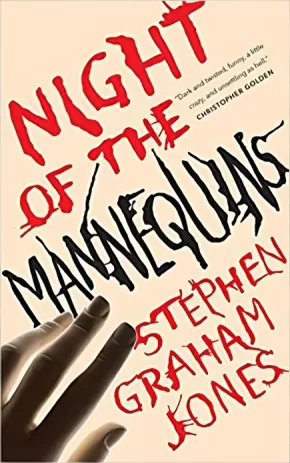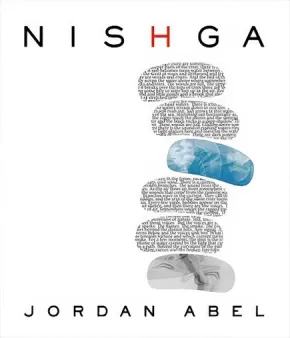
Indigenous Peoples
616
-
630
of
1080 Results;
Sort By
Go To
of 72
Iron Peggy
$16.95
Format:
Paperback
Text Content Territories:
Indigenous Canadian; First Nations;
ISBN / Barcode: 9781772012538
Synopsis:
Synopsis:
Peg is struggling for survival at her boarding school. Three über-cool “it” girls take aim at Peg and make her life utterly miserable. When her beloved Grandmother dies she just wants to disappear. Then an unexpected gift arrives; inside it, Peg finds three cast-iron Canadian soldiers. In despair, she throws them against the floor. How can they help her? They are so small, and the girls’ shadow is so big. But, miraculously, the toys come to life as Indigenous snipers from World War I, just in time to wage an epic battle against the girls. A powerful play that will appeal to audiences both young and old, Iron Peggy uses a creative and ever-surprising blend of voices and sceneries to tell this moving story. With 2018 marking the 100th-year anniversary of WWI, Iron Peggy is an excellent introduction to its history and a touching testimony that not only celebrates the First Nation participation in the war effort but also a young girl’s personal victory.
Iron Peggy, by award-winning, international Métis performer and playwright Marie Clements, was commissioned by the Vancouver International Children’s Festival and premiered at Vancouver’s Waterfront Theatre in 2019. (Adapted from Vancouver International Children’s Festival online presentation.)
Educator Information
A powerful play that will appeal to audiences both young and old. With 2018 marking the 100th-year anniversary of WW I, Iron Peggy is an excellent introduction to its history and a touching testimony that not only celebrates the First Nations participation in the war effort but also a young girl’s personal victory. By award-winning, international Métis performer and playwright Marie Clements, commissioned by the Vancouver International Children’s Festival.
Recommended for grades 9 to 12 for Acting, Drama, English Language Arts, and Social Studies.
Additional Information
112 pages | 5.50" x 8.50"
it was never going to be okay
$18.95
Format:
Paperback
Text Content Territories:
Indigenous Canadian; First Nations; Anishinaabeg; Oji-Cree; Ojibway; Saulteaux; Cree (Nehiyawak); Swampy Cree ; Sapotaweyak Cree Nation;
Grade Levels: 12; University/College;
ISBN / Barcode: 9780889713826
Synopsis:
Synopsis:
it was never going to be okay is a collection of poetry and prose exploring the intimacies of understanding intergenerational trauma, Indigeneity and queerness, while addressing urban Indigenous diaspora and breaking down the limitations of sexual understanding as a trans woman. As a way to move from the linear timeline of healing and coming to terms with how trauma does not exist in subsequent happenings, it was never going to be okay tries to break down years of silence in simpson’s debut collection of poetry:
i am five
my sisters are saying boy
i do not know what the word means but—
i am bruised into knowing it: the blunt b,
the hollowness of the o, the blade of y
Awards
- 2021 Indigenous Voices Awards winner for Published Poetry in English.
Reviews
"jaye simpson’s it was never going to be okay is a symphony of unrelenting rage and undying hope that beckons to be heard, seen and held with the utmost care. In this stunning debut they speak truths to the complexities of the body, land and memory through an intimately structured and poignant cadence. This collection will leave you longing for more and, in the legacy of trans Indigenous literature, change lives." — Arielle Twist, author of Disintegrate/Dissociate
"jaye simpson marshals a vast economy of images because their subject matter is as large as an entire country, as the colonial past, as structures of oppression and indifference that undermine Indigenous and trans livability. At the level of craft, simpson makes use of the codes of tragedy, polemic, autobiography and the lyric artfully and powerfully. By the book’s end, buoyed by its final beautiful and tender section, a kind of love letter to trans Indigenous peoples, one is called on to build a new world. In this way, jaye simpson's poetry is a vital artifact of a decolonial future!" — Billy-Ray Belcourt, 2018 Griffin Poetry Prize winner for This Wound Is a World
Additional Information
112 pages | 5.50" x 8.00"
Jaysen's Story
$9.95
Format:
Paperback
Text Content Territories:
Indigenous Canadian;
ISBN / Barcode: 9781926696829
Synopsis:
Synopsis:
Fourteen-year-old Jaysen Flett-Paul's true story of how Elders guided him through his first Sundance ceremony to heal the anger and grief stemming from his mother’s violent murder. It sensitively tackles the heart-breaking problem of suicide in Indigenous communities, an issue of great importance to this community and for communities across North America.
Educator & Series Information
Recommended for ages 13 to 18.
This book is part of the Finding Waka series.
Keywords / Themes: Ceremony, Elders, Family Issues, Grief, Anger, Loss, Spirituality
Additional Information
52 pages | 6.00" x 9.00" | Paperback
Journeyman: The Story of NHL Right Winger Jamie Leach
$14.95
Format:
Paperback
Text Content Territories:
Indigenous Canadian; First Nations; Anishinaabeg; Ojibway;
ISBN / Barcode: 9781773370545
Synopsis:
Synopsis:
Journeyman is a first-person biography of Ojibwe rightwinger Jamie Leach, son of the legendary NHL superstar Reggie Leach. Follow the fascinating hockey trajectory from his childhood years watching his father play for the Philadelphia Flyers, to Jamie’s first goal in the NHL.
Journeyman touches on Jamie’s summers on Lake Winnipeg, the World Junior Hockey Championships, his life in the minor leagues, and his eventual draft into the NHL as a Pittsburgh Penguin. Discover how some of hockey’s biggest stars such as Bobby Clarke, Jaromir Jagr, and Mario Lemieux influenced Jamie’s life.
Written in close consultation with Jamie and his mother, readers will learn about the struggles Jamie conquered, including his father’s alcoholism and his own crippling self-doubt.
A story of determination, heartbreak and perseverance.
Reviews
"This straightforward, inspiring account goes down easy and should appeal to most kids, especially skaters looking for role models." —Booklist
Educator Information
Recommended by the publisher for middle-grade readers 10+.
Forward by Reggie Leach.
Additional Information
104 pages | 5.00" x 7.00"
Land-Water-Sky / Ndè-Tı-Yat’a
$24.00
Format:
Paperback
Text Content Territories:
Indigenous Canadian; First Nations; Dene;
Grade Levels: 12; University/College;
ISBN / Barcode: 9781773632377
Synopsis:
Synopsis:
A vexatious shapeshifter walks among humans. Shadowy beasts skulk at the edges of the woods. A ghostly apparition haunts a lonely stretch of highway. Spirits and legends rise and join together to protect the north.
Land-Water-Sky/Ndè-Tı-Yat’a is the debut novel from Dene author Katłįà. Set in Canada’s far north, this layered composite novel traverses space and time, from a community being stalked by a dark presence, a group of teenagers out for a dangerous joyride, to an archeological site on a mysterious island that holds a powerful secret.
Riveting, subtle, and unforgettable, Katłįà gives us a unique perspective into what the world might look like today if Indigenous legends walked amongst us, disguised as humans, and ensures that the spiritual significance and teachings behind the stories of Indigenous legends are respected and honored.
Reviews
“This book brought a lot of memory for me when Elders used to tell stories sitting around and visiting my parents and telling stories about nąhgąąÌ. The story was so descriptive the way the Elders told stories. I related to all the events of the story because its very similar to the stories I’ve heard. MahsıÌ Cho for keeping our stories alive.”— Maro Sundberg, Executive Director at Goyatiko Language Society
“In the era of pre-contact, ancient stories were deeply engrained in the landscape from which it derives from. They inspire traditional storytellers to pass onto current times, a frame to support today’s tellings and in this writing, it’s an extension too snippets of stories heard, the collisions of changing times of life in the raw, taking many forms of intrigue, an ongoing tradition, a shapeshifting.” — John B. Zoe, traditional knowledge expert from Tlicho Territory, Senior Advisor with the Tłı̨chǫ Government, Chairperson of Dedats’eetsaa: the Tłı̨chǫ Research & Training Institute
"Katlıa has created a masterpiece that brilliantly weaves intriguing characters, history, culture, love for the land, water and sky into a riveting and magnificent read." — Monique Gray Smith, author of Tilly and the Crazy Eights
Additional Information
176 pages | 6.00" x 9.00"
Le rôdeur de nuit
$16.95
Format:
Paperback
Text Content Territories:
Indigenous Canadian; First Nations; Anishinaabeg;
ISBN / Barcode: 9782895977711
Synopsis:
Synopsis:
Affectée par le départ de sa mère, Tiffany, une jeune Anishinaabe, cherche à prendre en main son existence, entre son père et sa Mamie Ruth, sur la réserve de Lac-aux-Loutres, dans le centre de l’Ontario.Alors qu’elle compose déjà difficilement avec l’autorité de son père, les exigences de l’école et le début d’une relation amoureuse avec un garçon non autochtone, Tiffany voit sa vie bousculée par un mystérieux personnage, Pierre L’Errant, que son père a décidé de prendre comme chambreur.Celui-ci, qui dit débarquer d’Europe, fait une drôle d’apparition dans ce village où jamais un touriste ne met les pieds. Mamie Ruth, qui en a vu d’autres, n’est cependant pas dupe de ses histoires et devine qu’il camoufle d’épouvantables démons intérieurs.Auteur de nombreux romans et de pièces de théâtre, Drew Hayden Taylor, lui-même Anishinaabe, a voulu écrire un « roman gothique autochtone » où il aborde les défis de l’adolescence, la transmission de la culture et, surtout, la nécessité de ne jamais abandonner.
Educator Information
This book is available in English: The Night Wanderer: A Native Gothic Novel
Additional Information
330 pages | 4.72" x 7.48"
Love after the End: An Anthology of Two-Spirit and Indigiqueer Speculative Fiction
$21.95
Editors:
Format:
Paperback
Text Content Territories:
Indigenous;
Grade Levels: 12; University/College;
ISBN / Barcode: 9781551528113
Synopsis:
Synopsis:
A bold and breathtaking anthology of queer Indigenous speculative fiction, edited by the author of Jonny Appleseed.
This exciting and groundbreaking fiction collection showcases a number of new and emerging 2SQ (Two-Spirit and queer) Indigenous writers from across Turtle Island. These visionary authors show how queer Indigenous communities can bloom and thrive through utopian narratives that detail the vivacity and strength of 2SQness throughout its plight in the maw of settler colonialism's histories.
Here, readers will discover bioengineered AI rats, transplanted trees in space, the rise of a 2SQ resistance camp, a primer on how to survive Indigiqueerly, virtual reality applications, mother ships at sea, and the very bending of space-time continuums queered through NDN time. Love after the End demonstrates the imaginatively queer Two-Spirit futurisms we have all been dreaming of since 1492.
Contributors include Nathan Adler, Darcie Little Badger, Gabriel Castilloux Calderon, Adam Garnet Jones, Mari Kurisato, Kai Minosh Pyle, David Alexander Robertson, jaye simpson, and Nazbah Tom.
Reviews
"Many of the stories offer portraits of a dead Earth from which new life springs, and all are ultimately uplifting, hinting at a way forward through the darkness of the present. Drawing on deep wells of history and experience, these powerful stories are sure to impress." —Publishers Weekly
"The so-called end times feel so perilously close right now. With such a cacophony of anxiety, despair, and cynicism bearing down on us, it is sometimes easy to forget that Indigenous peoples have been here before, and we still remain to uphold our responsibilities to the world and to one another. Our stories guide us forward into an ever-uncertain future, just as they guide us back home. And as editor Joshua Whitehead affirms in the introduction, Love after the End is a book we need right now - and well beyond the now. The stories here are difficult, they're beautiful, they're hilarious and sad and frightening and hopeful. But more than all of that, they guide us back to ourselves and to our relations on a shimmering trail of song and stardust. The two-spirit visionaries in this collection remind us in so many ways that the world is a wounded relative in need of healing, and that to abandon her in this time of trial is to betray the sacred bonds of kinship that we were meant to carry with courage and compassion. I am grateful beyond words that this book is in the world, and grateful to the writers, artists, and editor for the gift of (re)imagining futures where Indigenous love, liberation, and laughter flourish far beyond the settler imaginary. —Daniel Heath Justice, author of Why Indigenous Literatures Matter
"Each of these smart, stunning, imaginative stories has not only fuelled my imagination but also filled my heart, reminding me how dramatically different it is to experience work written with absolute love. Reading Love after the End is like being handed a glass of fresh water in the middle of the desert." —Alicia Elliott, author of A Mind Spread Out on the Ground
Additional Information
192 pages | 5.80" x 9.00"
Mācī-Anihšināpēmowin / Beginning Saulteaux (10 in Stock) - ON SALE
$30.00 $34.95
Format:
Coil Bound
Text Content Territories:
Indigenous Canadian; First Nations; Anishinaabeg; Ojibway; Saulteaux;
ISBN / Barcode: 9780889777514
Synopsis:
Synopsis:
Mācī-Anihšināpēmowin / Beginning Saulteaux is an introductory look at one of the most widely spoken of all North American Indigenous languages, regionally known as Saulteaux, Ojibway, Ottawa (Odawa), Chippewa, and Algonquian. In an easy-to-use and easy-to-read series of lessons, both designed for self-study or for use in the classroom, Beginning Saulteaux will guide beginners through the language’s grammatical structures and spelling systems, as well as everyday terms and phrases. The book grounds the language in both traditional and contemporary contexts, and sheds light on the Saulteaux world view. For example, there is no word for good-bye in the language, so upon parting people will usually say Kika-wāpamin mīnawā, meaning “I’ll see you again.”
Educator & Series Information
The third in our Indigenous Languages for Beginners series, Beginning Saulteaux is an invaluable resource produced in consultation with Elders, Language Keepers, and community members, and continues our commitment to revitalizing Indigenous languages.
Additional Information
304 pages | 8.50" x 11.00" | Spiral Bound
Moonshot: The Indigenous Comics Collection Volume 2
$19.95
Artists:
Editors:
Format:
Paperback
Text Content Territories:
Indigenous Canadian;
ISBN / Barcode: 9780228706212
Synopsis:
Synopsis:
MOONSHOT: The Indigenous Comics Collection brings together dozens of creators from North America to contribute comic book stories showcasing the rich heritage and identity of indigenous storytelling. From traditional stories to exciting new visions of the future, this collection presents some of the finest comic book and graphic novel work on the continent.
Educator & Series Information
Inhabit Education Books is proud to distribute this important collection of Indigenous comic stories, originally published by Alternate History Comics. Moonshot has been published under Avani, an imprint featuring titles that extend beyond the Canadian North, giving readers the opportunity to explore cultures and stories from all over Canada and around the world.
Ages 12+
This is volume 2 in the Moonshot series.
Additional Information
165 pages | 6.50" x 10.25" | colour illustrations
Moonshot: The Indigenous Comics Collection Volume 3
$23.95
Artists:
Editors:
Format:
Paperback
Text Content Territories:
Indigenous Canadian;
ISBN / Barcode: 9780228706229
Synopsis:
Synopsis:
MOONSHOT: The Indigenous Comics Collection brings together dozens of creators from North America to contribute comic book stories showcasing the rich heritage and identity of indigenous storytelling. From traditional stories to exciting new visions of the future, this collection presents some of the finest comic book and graphic novel work on the continent.
Educator & Series Information
Inhabit Education Books is proud to distribute this important collection of Indigenous comic stories, originally published by Alternate History Comics. Moonshot has been published under Avani, an imprint featuring titles that extend beyond the Canadian North, giving readers the opportunity to explore cultures and stories from all over Canada and around the world.
Ages 12+
This is volume 3 in the series.
Additional Information
144 pages | 6.50" x 10.25" | colour illustrations
More Powerful Together: Conversations with Climate Activists and Indigenous Land Defenders
$26.00
Format:
Paperback
Text Content Territories:
Indigenous;
ISBN / Barcode: 9781773632261
Synopsis:
Synopsis:
How can social movements help bring about large-scale systems change? This is the question Jen Gobby sets out to answer in More Powerful Together. As an activist, Gobby has been actively involved with climate justice, anti-pipeline, and Indigenous land defense movements in Canada for many years. As a researcher, she has sat down with folks from these movements and asked them to reflect on their experiences with movement building. Bringing their incredibly poignant insights into dialogue with scholarly and activist literature on transformation, Gobby weaves together a powerful story about how change happens.
In reflecting on what’s working and what’s not working in these movements, taking inventory of the obstacles hindering efforts, and imagining the strategies for building a powerful movement of movements, a common theme emerges: relationships are crucial to building movements strong enough to transform systems. Indigenous scholarship, ecological principles, and activist reflections all converge on the insight that the means and ends of radical transformation is in forging relationships of equality and reciprocity with each other and with the land.
It is through this, Gobby argues, that we become more powerful together.
100% of the royalties made from the sales of this book are being donated to Indigenous Climate Action.
Educator Information
Table of Contents
Acknowledgments
Thinking Together About Changing Everything
The Climate and Inequality Crises in Canada
Understanding the Crises
Envisioning Alternatives
How We Get From Here to There
Taking Stock of Where We Are At and What Stands in Our Way
Overcoming the Barriers and Building More Powerful Movements
“We Get There Together, or We Don’t Get There at All”
Appendix
References
Index
Additional Information
266 pages | 6.00" x 9.00"
Mother Earth Plants for Health & Beauty: Indigenous Plants, Traditions, and Recipes
$24.95
Format:
Paperback
Text Content Territories:
Indigenous Canadian; Métis;
ISBN / Barcode: 9781926696645
Synopsis:
Synopsis:
The recipes and traditions found in this book reflect the culture and the knowledge of the Medicine Wheel, featuring 26 edible and medicinal plants that you can gather in nature as Carrie and her grandmother did.
Create a luxurious and natural beauty regime by crafting your own lotions, soaps and teas from all-natural ingredients. From stress-busting teas and bath bombs to skin-smoothing lotions and creams, get vibrant skin and a healthy glow with Carrie’s creations based on her grandmother’s traditional teachings.
"I remember gathering plants and berries with my grandmother while she shared her stories and her deep understanding of traditional plants and their uses. My grandmother healed us with her medicinal plants—everything from pink eye, sore throats, stomach ailments, aches and pains, and infections. She’d make us these beautiful, healing teas." –Carrie
Additional Information
144 pages | 6.00" x 7.75"
Night of the Mannequins
$18.99
Format:
Paperback
Text Content Territories:
Indigenous American; Native American;
Reading Level: N/A
ISBN / Barcode: 9781250752079
Synopsis:
Synopsis:
Award-winning author Stephen Graham Jones returns with Night of the Mannequins, a contemporary horror story where a teen prank goes very wrong and all hell breaks loose: is there a supernatural cause, a psychopath on the loose, or both?
We thought we'd play a fun prank on her, and now most of us are dead.
One last laugh for the summer as it winds down. One last prank just to scare a friend. Bringing a mannequin into a theater is just some harmless fun, right? Until it wakes up. Until it starts killing.
Luckily, Sawyer has a plan. He’ll be a hero. He'll save everyone to the best of his ability. He'll do whatever he needs to so he can save the day. That's the thing about heroes—sometimes you have to become a monster first.
Reviews
"Suffused with questions about the nature of change and friendship, “Night of the Mannequins” is a fairy tale of impermanence showcasing Graham Jones’s signature style of smart, irreverent horror." —The New York Times
"Stephen Graham Jones’s range and his understanding of horror in fiction and film is staggering. In this novella he juggles—sometimes in very sly ways—slasher stories, coming of age horror, traditions of madness and unreliability, and Kaiju to create an amazingly speedy, voice-driven read that's tons of fun. Each new book of his gives his own take on a different facet of horror, and together they all add up to something really expansive and original." —Brian Evenson, author of Song for the Unraveling of the World
"Readers will delight more than once in the realization that they might be reading a different story from the one they thought was unfolding... trust Jones and enjoy the ride." —Shelf Awareness
Additional Information
144 pages | 5.00" x 8.00"
Niqiliurniq: A Cookbook from Igloolik
$24.95
Format:
Paperback
Text Content Territories:
Indigenous Canadian; Inuit;
ISBN / Barcode: 9781772272673
Synopsis:
Synopsis:
“Food is life. Food is the key to vitality, goodness, happiness, and a strong body and mind.”
Compiled by five women living in Igloolik, Nunavut, this collection of recipes brings together healthy traditional country foods—like seal, Arctic char, and caribou—with store-bought produce to create delicious meals that can be an alternative to pre-packaged foods. With details on food safety and storage, as well as information on how to build a healthy, nutritious diet, this book will help even novice cooks feel empowered to begin cooking from scratch at home.
With tasty recipes from land and sea—from Arctic char pizza to caribou chilli—this beautifully photographed cookbook provides wholesome, hearty meals that will become family favourites for years to come.
Additional Information
114 pages | 7.00" x 10.00" | colour photographs | Paperback
Nishga (HC) (1 in Stock)
$32.95
Format:
Hardcover
Text Content Territories:
Indigenous Canadian; First Nations; Nisga'a;
ISBN / Barcode: 9780771007903
Synopsis:
Synopsis:
From Griffin Poetry Prize winner Jordan Abel comes a groundbreaking and emotionally devastating autobiographical meditation on the complicated legacies that Canada's reservation school system has cast on his grandparents', his parents' and his own generation.
NISHGA is a deeply personal and autobiographical book that attempts to address the complications of contemporary Indigenous existence. As a Nisga'a writer, Jordan Abel often finds himself in a position where he is asked to explain his relationship to Nisga'a language, Nisga'a community, and Nisga'a cultural knowledge. However, as an intergenerational survivor of residential school--both of his grandparents attended the same residential school in Chilliwack, British Columbia--his relationship to his own Indigenous identity is complicated to say the least.
NISHGA explores those complications and is invested in understanding how the colonial violence originating at the Coqualeetza Indian Residential School impacted his grandparents' generation, then his father's generation, and ultimately his own. The project is rooted in a desire to illuminate the realities of intergenerational survivors of residential school, but sheds light on Indigenous experiences that may not seem to be immediately (or inherently) Indigenous.
Drawing on autobiography, a series of interconnected documents (including pieces of memoir, transcriptions of talks, and photography), NISHGA is a book about confronting difficult truths and it is about how both Indigenous and non-Indigenous peoples engage with a history of colonial violence that is quite often rendered invisible.
Reviews
“With NISHGA, Jordan Abel has reinvented the memoir, incorporating personal anecdotes, archival footage, legal documentation, photos and concrete poetry to create an unforgettable portrait of an Indigenous artist trying to find his place in a world that insists Indigeneity can only ever be the things that he is not. Abel deftly shows us the devastating impact this gate-keeping has had on those who, through no decisions of their own, have been ripped from our communities and forced to claw their way back home, or to a semblance of home, often unassisted. This is a brave, vulnerable, brilliant work that will change the face of nonfiction, as well as the conversations around what constitutes Indigenous identity. It's a work I will return to again and again.” —Alicia Elliott, author of A Mind Spread Out on the Ground
“In NISHGA, Jordan Abel puts to use the documentary impulse that has already established him as an artist of inimitable methodological flair. By way of a mixture of testimonial vignettes, recordings of academic talks, found text/art, and visual art/concrete poetry, Abel sculpts a narrative of dislocation and self-examination that pressurizes received notions of “Canada” and “history” and “art” and “literature” and “belonging” and “forgiveness.” Yes, it is a book of that magnitude, of that enormity and power. By its Afterword, NISHGA adds up to a work of personal and national reckoning that is by turns heartbreaking and scathing.” —Billy-Ray Belcourt, author of NDN Coping Mechanisms and A History of My Brief Body
"This is a heart-shattering read, and will also be a blanket for others looking for home. NISHGA is a work of absolute courage and vulnerability. I am in complete awe of the sorrow here and the bravery. Mahsi cho, Jordan.” —Richard Van Camp, author of Moccasin Square Gardens
“Jordan Abel digs deeply into the questions we should all be asking. Questions that need no explanation but ones that require us to crawl back into our bones, back into the marrow of our understanding. NISHGA is a ceremony where we need to be silent. Where we need to listen.” —Gregory Scofield, author of Witness, I Am
Additional Information
288 pages | 7.25" x 8.62"
Sort By
Go To
of 72




